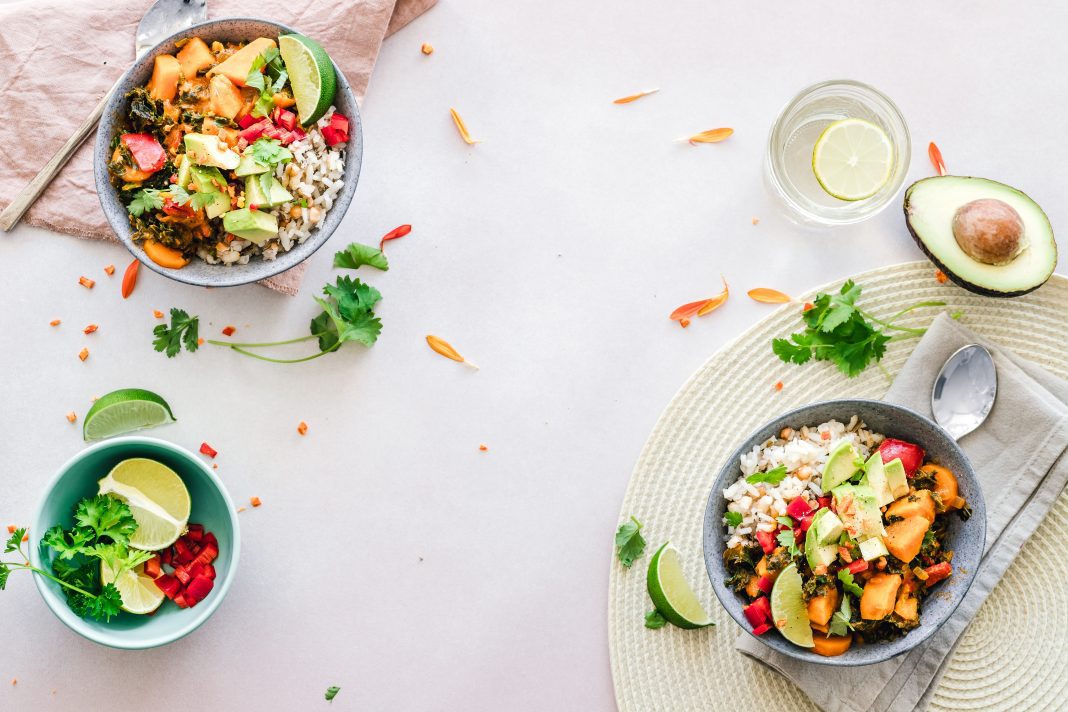Ariana Grande, Natalie Portman, Pamela Anderson, Ellen DeGeneres, Serena Williams, and many others, there’s a long list of female celebs who switched to Veganism. The pro-veganism tribe swears by its myriad health benefits; however, the omnivores argue that a vegan diet is not a complete diet, which means it is deficient in many vital nutrients. Consequently, it may be harmful to women’s health in the long run. So, what’s the complete story? Is Veganism good, especially for women? Keep reading to know more.
What is Veganism?
A vegan diet is a part of the larger movement called Veganism. It includes only a plant-based diet and excludes meat, eggs, fish, dairy products, and even honey. Note that a vegan is different from a vegetarian.
Why do People Turn Vegan?
People start following a vegan diet for several reasons, including:
- Compassion for animals. Mass production of eggs and dairy products and killing animals for meat leads to cruelty against animals.
- Health-related reasons, for example, people with high cholesterol, susceptibility to cardiovascular diseases, and colon cancer should stay away from meat.
- Concern for the environment. A vegan diet is associated with lower greenhouse gas emissions.
How Does a Plant-based Diet Affect Women?
The evidence says that the benefits of a vegan diet for women are many. Let us discuss these.
1. Improves Your Gut Health
A healthy gut contributes to effective digestion, good mood, a strong immune system, brain health, heart health, and restorative sleep. A vegan diet contains prebiotics (the lesser-known twin of probiotics), essential nutrients that improve intestinal microbiome and gut health. But, you must be thinking, what about probiotics? A vegan diet is also rich in probiotics—kimchi, pickled vegetables, tempeh, and kombucha are a few options.
2. Fertility-friendly
Plant-based foods help manage fertility issues because of irregular ovulation. For example, replacing animal protein sources with vegetarian protein may reduce ovulatory infertility risk. Therefore, it makes sense to include beans, lentils, peas, etc., in your diet to improve the chances of conception. In addition, iron and folate in plant-based food sources also benefit women, whether they are trying to conceive, pregnant, or dealing with postpartum.
-
It helps maintain healthy sugar levels
Blood sugar fluctuations are a sign of a health issue, particularly in women if they have PCOS or insulin resistance. A plant-based diet is a great self-care option for living better by preventing dramatic rise and fall in sugar levels. Steady sugar levels support healthy ovulation, enhance egg health, and make you hormonally fit. Fortunately, many vegan foods contain healthy fiber, fats, and protein, slowing the breakdown and absorption of food, helping regulate sugar levels, and keeping you full for longer.
4. Lowers Inflammation
Chronic inflammation is the gateway to chronic diseases and lowers reproductive response in women. Sticking to plant-based foods is a surefire way to decrease inflammation. Research shows red and processed meats are high in saturated fat, which causes inflammation.
5. Decreases the Risk for Endometriosis and Fibroids
A diet rich in veggies can cut down the risk of developing endometriosis. Similarly, taking fruits and vegetables daily may help lower the chance of developing fibroids. In addition, the adequate fiber intake from these foods also relieves constipation, a common symptom in women suffering from endometriosis and fibroids.
-
Good for vaginal health
Just like the gut, the vagina, too, has its flora. Plant-based diet intake helps balance hormones, combats disease-causing microorganisms, and helps maintain healthy pH levels. Seasonal fruits like cranberry help prevent urinary tract infections and boost its natural self-cleansing mechanism.
As evident, a plant-based diet is nutrient-rich and offers several health benefits. This brings us to the question, Is Meat-Based Diet Bad For Women?
To put it straight, no. It does not mean the other alternative is bad if something is better. For example, Professor Ian Givens, Director, Institute for Food, Nutrition, and Health at the Reading University, underlines that many young women may develop health issues because of nutritional deficiencies caused by consuming little or no dairy products and red meat.
Meat, among many nutrients, has iron and B12—two essential nutrients for women’s health. Meat and animal products have heme iron, which the human body absorbs more easily than the non-heme iron found in vegan iron sources. Similarly, Vitamin B12 is easily found in meat and meat products. Vegans, on the other hand, need to take supplements or B-12 fortified foods to reach healthy levels of Vitamin B12’s daily intake.
Likewise, animal proteins contain all the essential amino acids, while most sources of plant proteins are incomplete. It means they do not have the nine essential amino acids sufficiently. Amino acids support various bodily functions, build muscles, transport nutrients, facilitate chemical reactions in the body, and prevent illness. The lack of amino acids can adversely affect immunity, digestion, mental health, fertility, cognition, and growth.
Nuts are often suggested as an alternative to amino acids found in meat. However, you neither can’t simply substitute nuts for meat nor do nuts contain all the essential amino acids.
The status of Vitamin D levels is no different. Research has shown that vegans and other vegetarians may be at greater risk of vitamin D deficiency. Plant-based food sources contain ergocalciferol (D2), whereas animal-based foods contain cholecalciferol (D3). Among the two, cholecalciferol raises blood levels of absorbable vitamin D better than ergocalciferol (D2). Sources of Vitamin D3 are all meat-based—egg yolks, fatty fish, cod liver oil, fortified milk, etc. Women who rely on vegan sources of Vitamin D are more vulnerable to osteoporosis, hypertension, obesity, psoriasis, mental health illnesses, rheumatoid arthritis, and immune dysfunction.
Now comes the million-dollar question, which is better: a vegan or meat-based diet?
You need to eat a wide variety of healthy plant foods to get maximum health benefits. Besides, a vegan diet requires you to constantly check on maintaining healthy levels of Vitamin D, iron, B12, calcium, and zinc. Alternatively, though excessive meat consumption (especially red meat) has been associated with stroke, cardiovascular disease, and other chronic diseases, moderate consumption of meat can actually provide long-term health benefits.
































